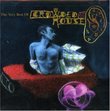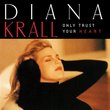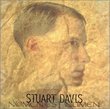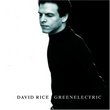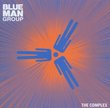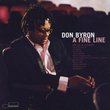| All Artists: Anoushka Shankar Title: Live at Carnegie Hall Members Wishing: 1 Total Copies: 0 Label: Angel Records Original Release Date: 1/1/2001 Re-Release Date: 10/23/2001 Album Type: Live Genres: International Music, Pop Styles: Reggae, India & Pakistan, India Number of Discs: 1 SwapaCD Credits: 1 UPCs: 724353492229, 724353492250 |
Search - Anoushka Shankar :: Live at Carnegie Hall
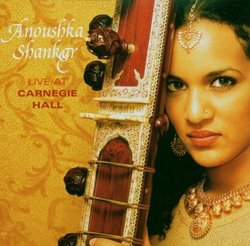 | Anoushka Shankar Live at Carnegie Hall Genres: International Music, Pop
As daughter of the legendary Ravi Shankar, 20-year-old Anoushka Shankar has had some pretty big expectations put upon her. Obviously, the elder Shankar thought the then-18-year-old student was ready for the challenge o... more » |
Larger Image |
CD DetailsSynopsis
Amazon.com As daughter of the legendary Ravi Shankar, 20-year-old Anoushka Shankar has had some pretty big expectations put upon her. Obviously, the elder Shankar thought the then-18-year-old student was ready for the challenge of recording live at Carnegie Hall (he trained her and used her in his group), and he was right. Recorded in October 2000, Anoushka's third album displays her thrilling playing. The young Shankar covers a wealth of emotions, from highs fueled by rapid-fire plucking to mellow lows that float upon her hypnotic drone. Fortunately for non-meditating listeners, the younger Shankar tends to keep the songs (all composed by Ravi) fairly short by raga standards. She also shows herself to be a generous leader on "Bhupali Tabla Duet," letting tabla players Bikram Ghosh and Tanmoy Bose take the lead. The CD features an additional live track from England added for good measure, but even without it, this live performance is a stunning musical display from Indian music's next generation of Shankar. --Tad Hendrickson Similarly Requested CDs
|
CD ReviewsAnoushka Bashing Shows Ignorance of Hindustani Music Alvin Harper | Sacramento, CA USA | 02/21/2007 (5 out of 5 stars) "I am frankly shocked at the number of negative reviews written by people who either admit they don't know much about Hindustani classical music or display their ignorance in the comments they make. Anoushka has 24 concert scheduled in the next 2 months; in addition, she will be by her father's side at each of the 8 concerts he has set in the same time period. Ample evidence that many thousands of Classical Indian Music fans in the US alone consider her a major talent - as do I. Anoushka is a professional recording and concert artist - yet several reveiws criticize her "commercialism". Concerts and CDs are commercial enterprises, my friends - duh! Some criticize her for trading on her family name while singing the praises of her father who became well known because of his famous brother, Uday Shankar. It is improper under any circumstances to refer to classical performances like these as "songs". Those who claim that these pieces are "verbatim" or "identical to" something on another of her CDs or played at a concert they attended simply have no idea what they are listening to and may have mistakenly assumed that this music, like virtually everything in the West, consists of composed pieces written in advance and played as such. Hindustani classical music is improvised within strict and complex rules that define and control each raga. The term "composition" most often refers to a short chorus or refrain which states the theme and to which one returns after a period of improvization. (In the Carnatic music of South India, the term is used for something much more akin to a Western song. This lends Carnatic music it's repetative and non-creative feel. And please note: Hindustani music is the most complex system of rhythm and melody in the world, substantially more developed than any other in South Asia - it is hardly waiting to blossom.) The use of two drummers is common in all Indian Classical Music. To suggest that these great tabla players tripped one another up in any way is simply foolish. If you cannot hear the tala, you may become confused. They played brilliantly together! This music is taught to students who imitate EXACTLY what their gurus sing or play. To preserve a tradition developed over centuries it is very important that a performer master the one style being handed down to her before hot-dogging and "doing her own thang" - something that may be valued among kids who last week learned a few chords on the guitar, but considered very dangerous in highly developed classical music systems of all kinds. Anoushka has a responsibility to preserve the entire classical traditon of her father, his guru the great Ustad Allaudin Khan, and indeed, the entire Maihar tradition. Once we are all fairly certain this has been acomplished, we will welcome more of her own individual expression. Until then it is with great humility and respect for her father that she doesn't try to show him up, act like she knows more than he does, or even suggest that she has something important to add that he missed in the last 60 years. This is not an Okie Stomp. Anoushka displays grace, modesty and deep respect for her culture, traditions and family honor. In addition, she is always dressed very tastefully in the typical outfits of India - to criticize this is to criticize India herself, something for which you should be ashamed! Michael Robinson is among those musicians who has retuned a piano using just intonation in order to play with the sitar. You can also chose pentatonic ragas that avoid a few sour notes. Finally, the tuning of sympathetic strings is a highly variable and personal matter. I can think of several situations in which I have tuned both 4ths for various reasons. Why Anoushka may have done so is really not any of your business. If you were Hindustani musicians you would have found it unremarkable and would not have made the mistake of assuming that there is any correct way to tune a sitar's tarafs. " I'd far rather be able to enjoy this music than be a scholar Neal C. Reynolds | Indianapolis, Indiana | 06/21/2002 (5 out of 5 stars) "Anoushka's music speaks to me, and I enjoy it immensely. I am not a scholar or even greatly knowledgeable of Indian music, just a music lover who knows what sounds good to my ears and what doesn't. Bear that in mind if you use this review as a guide. It appears that the more of a scholar of this music you are, the less you are able to enjoy it.I do question the questions asked by one reviewer who wants to know why two tablas. It seems to me that the artist has the right to decide the makeup of the accompaniasts, and if Anoushka feels that it takes two tablas to create the sound she wants, so be it. Again, she chooses to perform her father's work, or at least his interpretations of the ragas. I doubt that there's any law, man made or divine, against that. If she presently is so deeply tuned in to her father's spirit that she chooses to play only that which he has had his hand in, I feel this is her choice.Now this may be my overworked imagination, but the very first time I played this CD, I have an overwhelming feeling of listening to a female voice expressed by the sitar. I might be the only one who gets this feeling. I haven't seen anybody else mentioning it. At any rate, I share that feeling with you without guaranteeing you will hear the feminine spirit in the music that I hear. This is the second CD of hers I have, and I didn't get that feeling on the other one.So if you enjoy sitar music, but are not a scholar with preconceived ideas of how it should be played, I think you will like this as I did." Beautiful and emotional music that talks without words.... Alvin Harper | 05/20/2003 (5 out of 5 stars) "I'm not a music scholar and I know little about musical theory, especially that pertaining to classical Indian music. However I have a good pair of ears that have loved and appreciated many forms of great music for the last 35 years (years that I can remember at least, now being age 42).Like many westerners, I first heard the sitar through the Beatles way back when. However, I've only recently got into indian classical music (for about 4 years). I have 8 Ravi Shankar CD's...they are all brilliant and he is an obvious genius..musician, composer, man .........I saw Anoushka play solo in London in July 2002. I hadn't heard her play before... I was simply amazed.... She was brilliant...the sounds coming into my ears were glorious and nearly brought me to tears on many an occasion. The Carnegie Hall cd, purchased after the recital, did not disappoint at all!!...... it is brilliant and I never tire of listening to it..... She plays beautifully, with so much emotion you can feel it choking u up...Indeed, she looks gorgeous and has wonderful stage presence.....this is irrevalent however when listening to her interpret the wonderful music that her father had lovingly composed especially for her..I wonder whether some of the reviewers have even heard the cd?
It seems that minds have been made up beforehand.....it's possible that a)her beauty, a)her position of privilege as Ravi's daughter(though she never flaunts it), c) her young age...could actually be against her in the eyes of the damners.. for example...what would the reviews of 'carnegie hall' be like if it had Ravi Shankar's name and photo on the cover?I also own the other two cd's, Anoushka and Anourag....I recommend them both wholeheartedly. I had the great pleasure of seeing Ravi and Anoushka play in London the other day....how fantastic that was! How an 83 year old can play like that is a miracle really... I'm off to see solo Anoushka this weekend and can't wait.....For the record, I'm aware of many musicians from India, Pakistan and Afghanistan...having spent 4 years living and working in those areas....Hopefully Anoushka will release a new cd in the near future...I'm greatly looking forward to it...." |

 Track Listings (6) - Disc #1
Track Listings (6) - Disc #1
